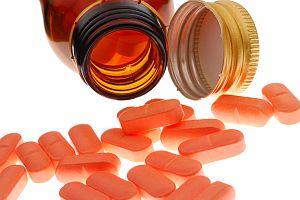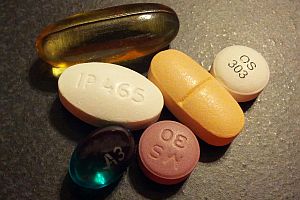What to Look For When Buying Nutritional Supplements
 There are quite literally hundreds of different brands of nutritional supplements (also called dietary supplements) on the market today, and it’s difficult for the average consumer to tell the difference between one and another. Each manufacturer claims that its products are supportive of your health, but how can you really determine if a nutritional supplement is safe and effective? Then there’s the price tag. Brands vary considerably in cost—one multivitamin may cost 20 cents per day, whereas another can cost a whopping $7.50! How can you decide whether it’s worth it? Our goal is to provide you with some practical advice—basic facts combined with a few do’s and don’ts—that you can use to be a more educated consumer if you decide to buy nutritional supplements.
There are quite literally hundreds of different brands of nutritional supplements (also called dietary supplements) on the market today, and it’s difficult for the average consumer to tell the difference between one and another. Each manufacturer claims that its products are supportive of your health, but how can you really determine if a nutritional supplement is safe and effective? Then there’s the price tag. Brands vary considerably in cost—one multivitamin may cost 20 cents per day, whereas another can cost a whopping $7.50! How can you decide whether it’s worth it? Our goal is to provide you with some practical advice—basic facts combined with a few do’s and don’ts—that you can use to be a more educated consumer if you decide to buy nutritional supplements.
Just because a nutritional supplement is “natural” does NOT necessarily mean it is safe. There are plenty of products that can be dangerous if you suffer from certain health conditions, use them along with certain other foods, medicines or supplements, or take them incorrectly. Even if you avoid interactions and take a supplement correctly, it is still possible for your body to have a negative reaction to a supplement. If this happens, stop taking the supplement immediately and see your doctor.
The FDA regulates dietary supplements very lightly. A supplement manufacturer does not need FDA approval to put its products on the market, but the FDA is responsible for monitoring the products’ safety, removing them only if they have caused problems. However, the FDA does require that manufacturers follow “good manufacturing practices” for processing and that they meet quality standards. This includes ensuring that the supplement contains the stated amount of ingredients and that it is free from contamination from things such as pesticides and heavy metals.
One thing to look for in a nutritional supplement is the “USP Verified” seal of approval. This is given to products that meet the stringent requirements for quality, purity and potency as established by the non-profit group U.S. Pharmacopeia.
The form in which you take your dietary supplements may also make a difference. Tablets tend to contain more fillers and binders than capsules because the powder they are made from must stick together in a regular mass. They may also be coated to keep it from falling apart and to make swallowing easier. They may also have added coloring and flavoring to make them more palatable. All else equal, it usually makes sense to avoid these. Capsules or gel caps are more likely to be free from excess fillers and binders. But if you are vegetarian or vegan, be sure to read the label to ensure the capsules are not derived from animal sources (cellulose is the most common vegan-friendly form of capsule).
Always read the product’s label thoroughly to see exactly what each supplement contains. While buying the most expensive supplement obviously won’t guarantee its quality or effectiveness, it is often true that you get what you pay for. Cheap supplements are frequently made from inferior ingredients or those that cost less to manufacture, and are often less readily absorbed by the body. Who wants to pay for supplements only to have them flushed down the toilet? A high-quality supplement will be more bioavailable, which is what you’re taking it for in the first place!
As with most other products, it usually pays to do a little homework before choosing a manufacturer and buying a supplement. Above all, you’ll want a manufacturer who has a good reputation and stands behind its products. Good companies will stress their excellent quality control and will be happy to provide you with independent evaluations of their products. Many chiropractors have specialized training and experience related to nutrition, and can help you decide which dietary supplements might be right for you.

